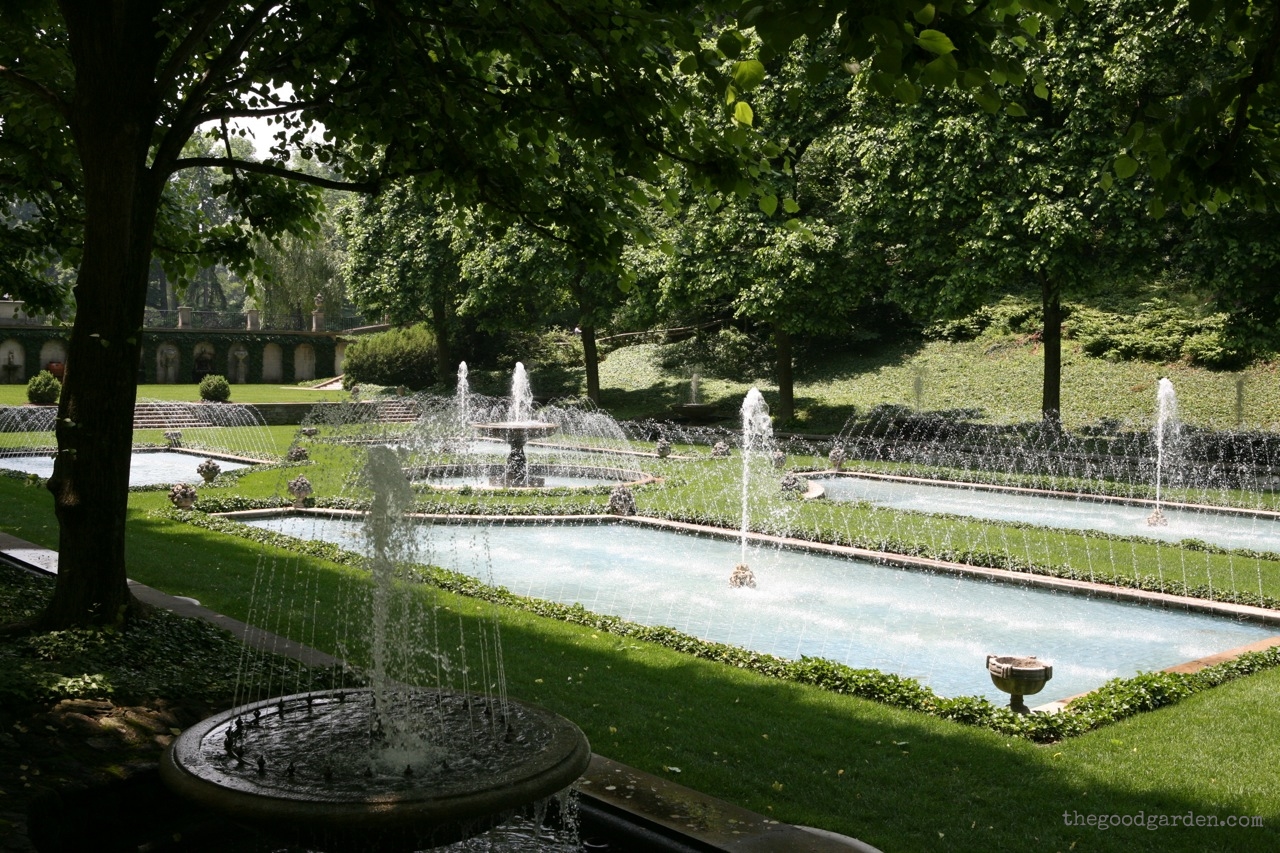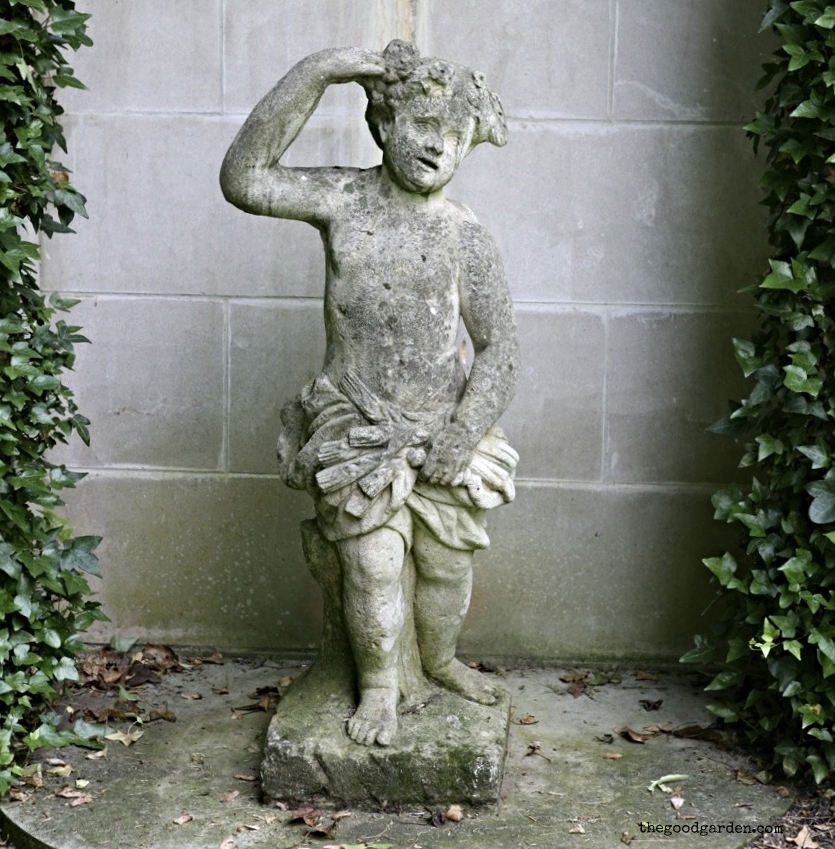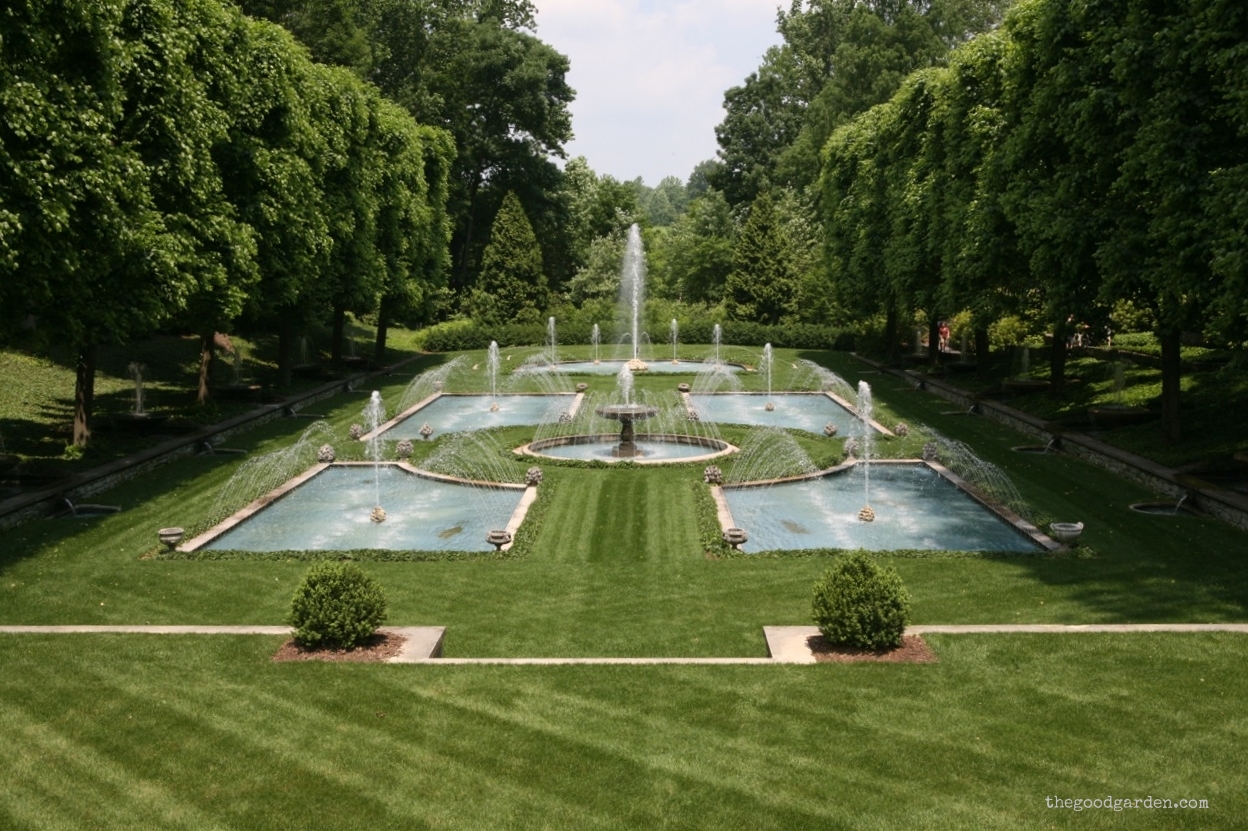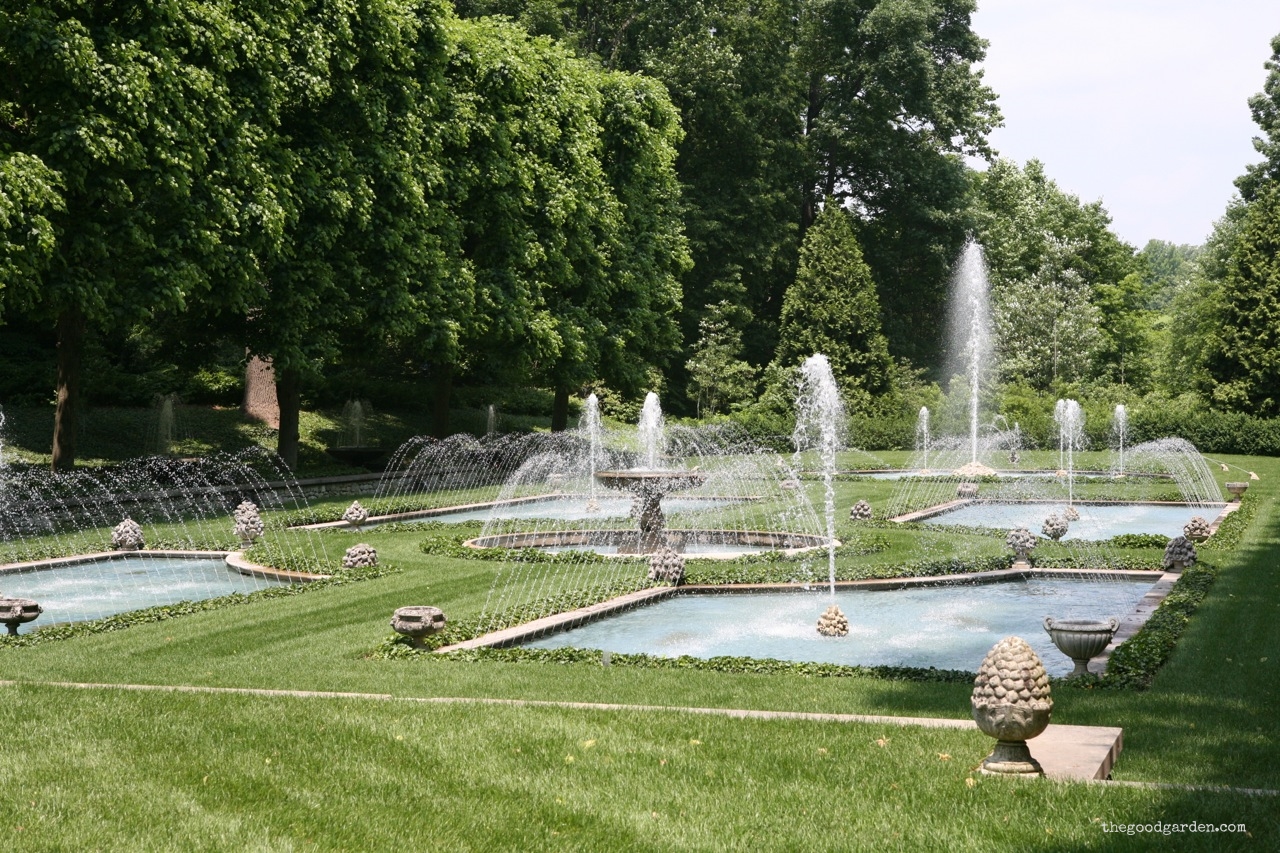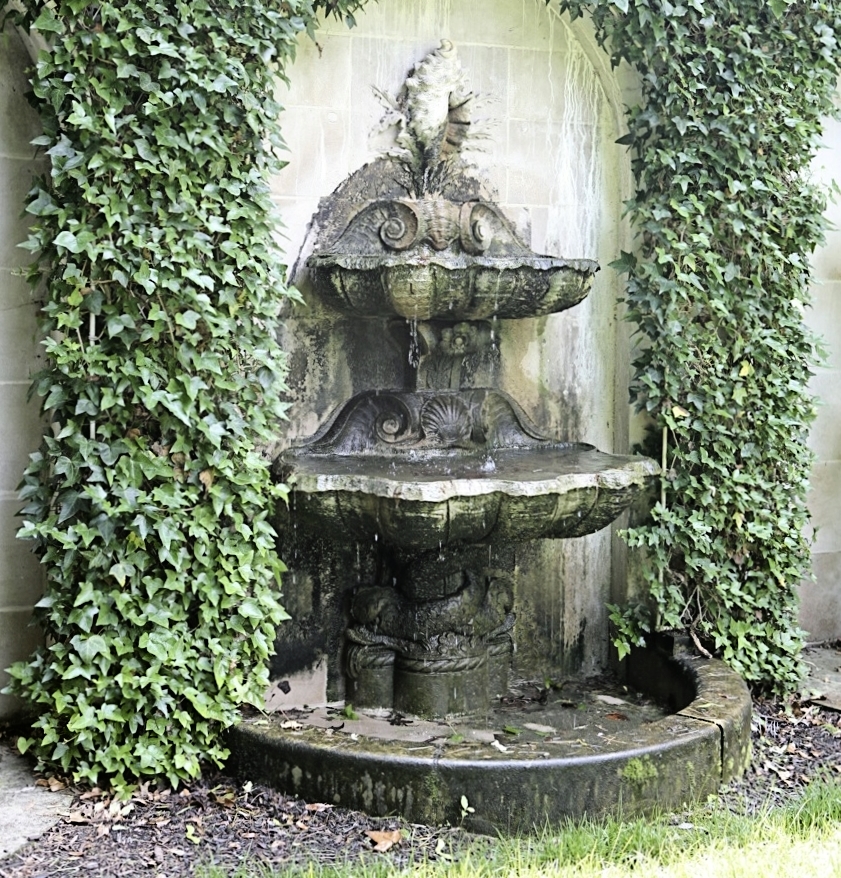This summer my sister and I found ourselves on the east coast of the US but 4 hours apart, and so we agreed to meet in the middle. Fortunately for us, that mid-point put us at the spectacular Longwood Gardens in Kennett Square, Pennsylvania.
One of our favorite spots was the Italian Water Garden, a space carved out of marshland in the 1920’s. Estate owner Pierre Dupont worked with Landscape architect Ferrucio Vitale to include linden trees, ivy, and green lawns. Dupont was heavily involved. According to the garden's website, he even “calculated that the northernmost pools needed to be built 14 feet longer than the southernmost pool to appear symmetrical from the viewing deck.”
The Vitale designed fountains include six pools fed by 600 jets. The circle in a square design was inspired by the Italian renaissance Villa Gamberaia in Florence. A dozen pedestal bowls frame the space. Repeating shapes and the play of water, give this landscape a musical feeling.
Hedging and tall trees define the area and create a sense of shelter. Vitale expert Terry Schnadelbach explains this important feature: “The extensive tree transplanting necessary to structure these spaces was achieved by utilizing the new technologies that Vitale had asked the Long Island nursery firm of Lewis and Valentine to develop. The 60-foot maples at Longwood were transplanted fully mature.”
Adding to the drama, and my favorite feature, is that the garden is sunken. This allows for stunning views from above. More important: stepping down into the space provides a greater sense of isolation; a feeling that the garden is embracing you.
Vitale was an Italian immigrant who studied engineering and architecture before settling into practice as a landscape architect. In addition to his work for Dupont, he designed private estates for the Rockefellers and Mellons. His public work included the wonderful Meridian Hill Park in Washington, DC. Vitale was known to be a vocal advocate for the profession.
Longwood was the passion of Pierre Dupont. He purchased the property in 1906 when it was a working farm and arboretum full of natural streams, forests, wetlands, and meadows. Over the years he expanded Longwood to over 900 acres and created over 40 garden spaces including fountains and conservatories. After his death in the 1950’s it was permanently opened to the public and fully endowed. The area was originally home to the Lenni Lenape tribe.
When visiting Longwood make sure you set aside plenty of time. Each space is different, so there is something for everyone. I guess that is why nearly 1 million people visit each year.
A wonderful book about the work of Ferruccio Vitale by Terry Schnadelbach. It is well researched and full of historic black and white photos that provide a glimpse into what the gardens must have looked.

